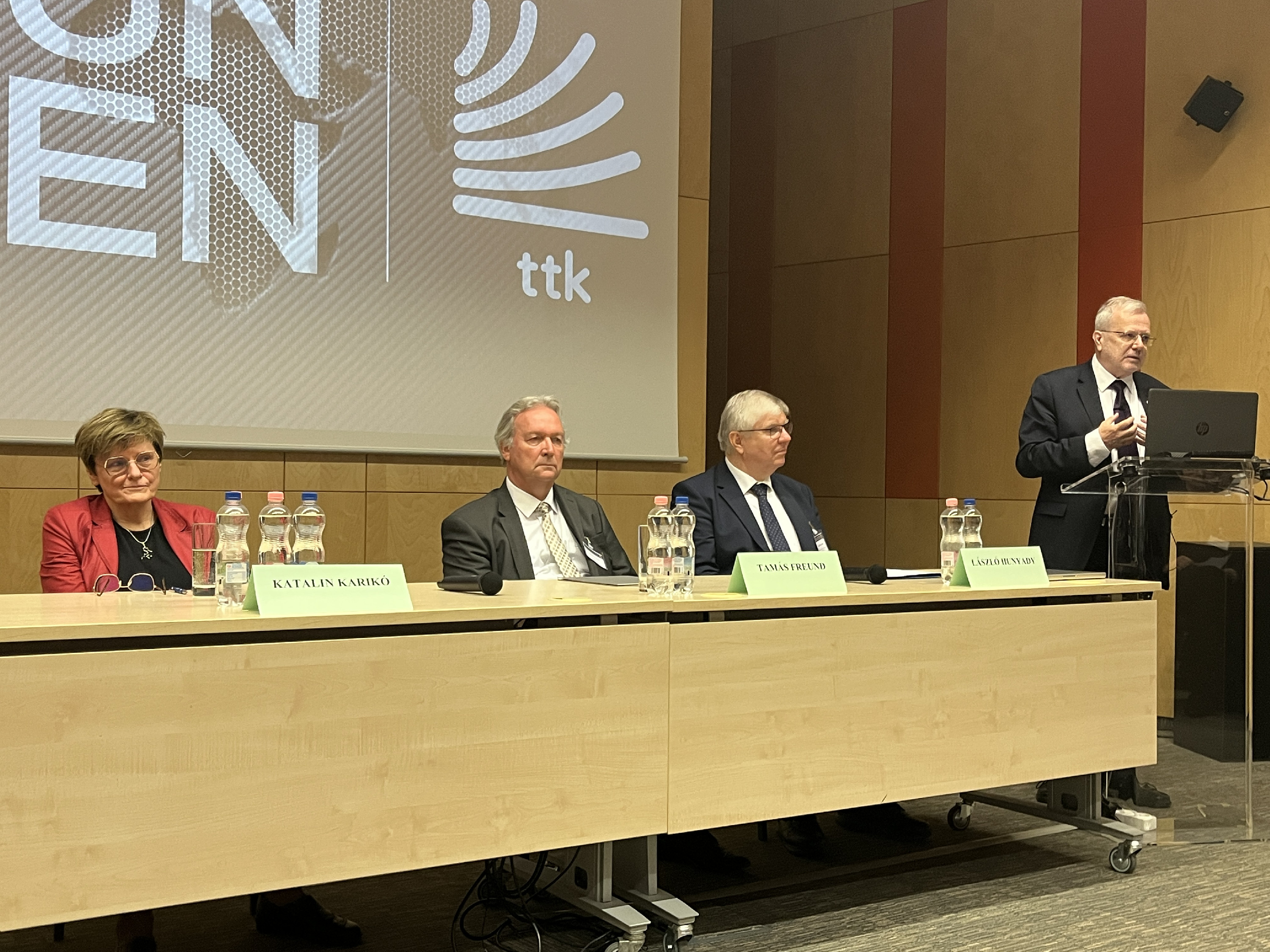Decades of Science: The Institute of Molecular Life Sciences Turns 75
The Institute of Molecular Life Sciences at the HUN-REN Research Centre for Natural Sciences (HUN-REN RCNS) celebrated its 75th anniversary with a scientific conference. The all-day event was made memorable by a lecture from Nobel laureate Katalin Karikó, presentations from renowned international speakers, and reports from researchers of RCNS.
At the festive event held on May 31, speeches were delivered by Balázs Gulyás, President of HUN-REN, as well as by László Hunyady, Director of the celebrating Institute of Molecular Life Sciences, Tamás Freund, President of the Hungarian Academy of Sciences, and László Buday, Director General of the HUN-REN Centre for Natural Sciences.

Lectures and Research Up Close
Among the speakers was Katalin Karikó, Hungarian Nobel Prize laureate, who spoke about the key milestones of her scientific career and her foundational research on mRNA-based vaccines. Presentations were also given by Richard G. Pestell, President of the Pennsylvania Cancer and Regenerative Medicine Research Center and member of the HUN-REN Advisory Board, and Ole Holger Petersen, Professor at Cardiff University, who discussed the importance of ion channel regulation across various fields.
Among the Hungarian researchers, András Füredi, researcher at the Institute of Molecular Life Sciences, presented his recently published study. We previously reported on his work examining cancer cells behaving like “zombies.” The professional audience also had the opportunity to meet András Nagy, a Hungarian researcher returning from Canada’s Lunenfeld-Tanenbaum Research Institute through the Research Grant Hungary program, who will continue his scientific work at the HUN-REN Centre for Natural Sciences. Gergely Róna, a cell biologist, also gave a presentation. Having returned from the United States through the HUN-REN Repatriation and International Researcher Recruitment Program, he is now leading a research group at the Institute of Molecular Life Sciences investigating the molecular mechanisms of neural DNA repair to better understand neurodegenerative diseases.

